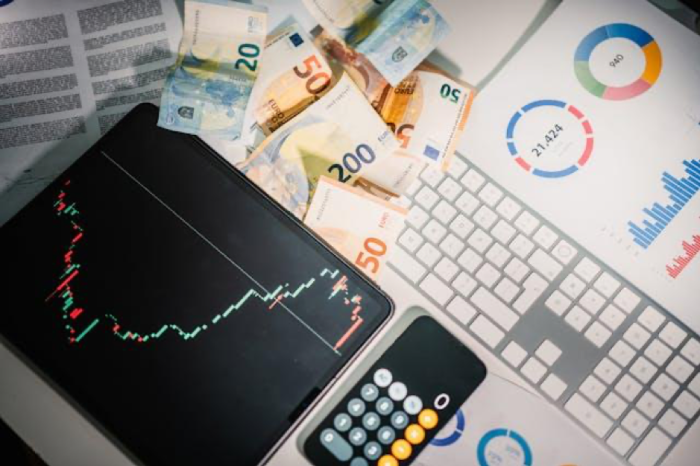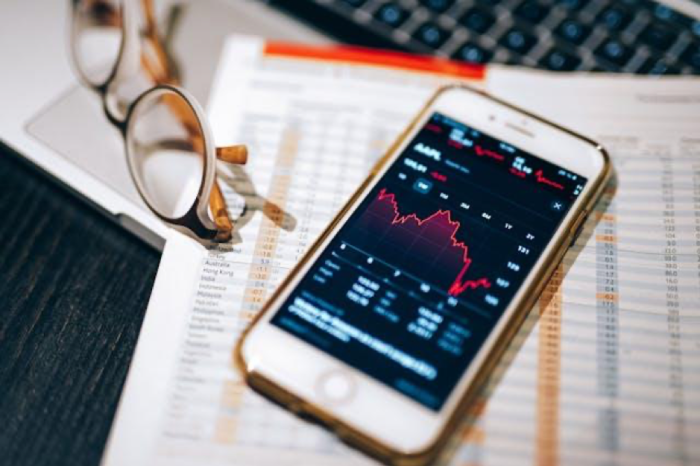
Most financial experts agree that the U.S. economy has experienced a significant pull in two primary directions over the last few months. On one side, shifts in trade policies, tariffs, and ongoing global conflicts are driving uncertainty. Conversely, rapid technological advancements are redefining the rules of finance, trade, and labor. Additionally, financial markets are evolving fast, with advancements in AI-driven algorithms at the center, steering market movements. The speed and complexity of these shifts make it harder for businesses, investors, and policymakers to keep up, causing a new reality in the U.S. economy. With all this in mind, let’s examine how these forces are reshaping the U.S. economy.
The Role of Geopolitical Tensions in Shaping Currency Markets
The currency market has always been volatile, highly liquid, and driven by interest rates, trade balances, and geopolitical events. Since early 2025, however, it has become even more uncertain, especially for markets tied to the greenback. Experts attribute this to Trump’s presidency, which has intensified protectionist trade policies. Higher tariffs now target rivals like China and allies like Canada and Europe. The result? A chaotic foreign exchange market, with unpredictable investor sentiment, as businesses scramble to adjust.
In addition, BRICS (Brazil, Russia, India, China, and South Africa) nations have ramped up de-dollarization efforts, actively working to move away from the USD in global trade. Meanwhile, conflicts in Europe, along with the ongoing crisis between Israel and Gaza, have only made things worse, further shaking confidence in major currencies.
Bottom line: Geopolitical moves aren’t just influencing currency markets anymore; they control them, and companies or investors who don’t adapt pay the price.

The Rise of Automated Trading and Its Economic Impact
There’s no way a human can match AI in trading in terms of accuracy, precision, and consistency. Why? At its core, trading is all about processing massive amounts of data, spotting patterns, and executing trades at the perfect moment — things AI was built for. That’s why AI-driven trading processes and strategies aren’t just helpful in 2025; they’re non-negotiable.
The rise of automated trading and AI-driven strategies has completely reshaped financial markets, bringing significant economic impact. How? These technologies have made markets move faster, operate more efficiently, and become more liquid. However, it’s not all good; this level of automation has also cranked up volatility and introduced systemic risks that demand constant monitoring and regulation. Today’s financial markets are operating at speeds and levels of complexity that simply didn’t exist a few decades ago.
So, how do you stay ahead in a market that never sleeps? Simple: use the right tools, stay informed, and don’t rely on outdated trading strategies. Reliable platforms like the MT4 trading platform bring together everything traders need to track market movements, automate strategies, and stay ahead of sudden swings. In today’s AI-driven market, being slow means being left behind.
How Technology Is Democratizing Access to Financial Markets
Everything about the financial landscape has changed from what it used to be a few years ago. Think about it: Banking, investing, and almost every other thing was structured to favor institutions rather than the everyday investor. It didn’t matter whether you were trading stocks or managing assets; the power was in the hands of the big players. But that’s changed, and more change is still coming, all thanks to technological advancements.
This change points to old barriers surrounding the financial markets crumbling, and power is shifting toward individual investors. How? Technology is breaking down traditional gatekeeping and making financial markets more accessible than ever. Simply put, technology is democratizing access to financial markets, and here’s how:
- Online Trading Platforms & Mobile Apps: Reduced costs, user-friendly interfaces, and 24/7 market access mean anyone can trade without relying on traditional brokers.
- FinTech Innovations: Robo-advisors offer low-cost, AI-driven investment guidance, fractional shares let small investors own pieces of expensive stocks, and digital payment systems make investing seamless.
- Information Accessibility: Real-time market data, research reports, and social trading platforms empower retail investors with the same insights once reserved for professionals.
- Cryptocurrencies & Blockchain: Decentralized finance (DeFi) is reshaping investment opportunities, increasing transparency, and lowering transaction costs.
How Geopolitics and Technology Interact
Policies and technology are colliding in ways that directly shape the U.S. economy. For starters, the AI arms race between the U.S. and China has only intensified in recent months, with both nations pouring billions into all versions of AI, including military AI and autonomous weapons. Cyber warfare is no longer just a threat; it’s a daily reality, with state-sponsored attacks targeting critical infrastructure and forcing governments to ramp up cybersecurity efforts. Reports of cyber espionage and digital warfare are everywhere. This reinforces the idea that economic power depends just as much on digital security as traditional military strength.
At the same time, the U.S. government is cracking down on foreign tech companies, tightening data privacy laws, and demanding more control over the flow of information. National security concerns drive these decisions, which also have massive economic consequences. This isn’t just about sustainability; it’s about maintaining an edge in a world where control over key resources translates directly to economic and geopolitical power.
Regulatory Challenges and Opportunities in the U.S. Economy
The U.S. regulatory landscape is getting more complicated daily, especially regarding Tech. AI, cybersecurity, and cryptocurrency all need rules that balance innovation with security. For example, financial oversight has to keep up with the risks posed by automated trading and FinTech while encouraging innovation. Due to ongoing geopolitical tensions, trade regulations are also a mess, and labor laws still haven’t fully caught up with remote work, worker protections, and fair wages.
That said, regulation isn’t just about roadblocks; it also creates openings. Clear rules give businesses the confidence to innovate without second-guessing legal risks. Stronger consumer protections in areas like data privacy and cybersecurity make the digital economy more trustworthy. Targeted policies can also level the playing field for small businesses and help tackle economic inequality. If done right, regulation can stabilize the economy while making room for growth.

Navigating an Economy in Flux
Geopolitics and technology are reshaping the U.S. economy at an unprecedented pace. Trade policies, AI-driven markets, and shifting global alliances create risks and opportunities. Amidst all these, success is guaranteed to those investors and businesses that adapt to these changes. In a world where uncertainty is the only constant, staying informed and agile isn’t just an advantage; it’s necessary.

You must be logged in to post a comment Login